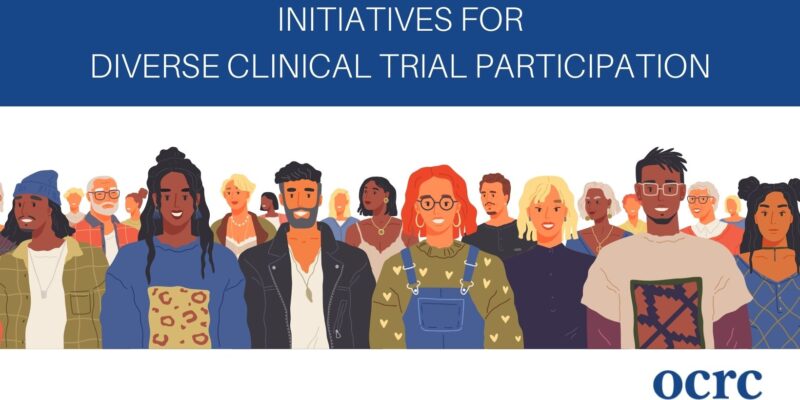
Diverse clinical trial participation is essential in the quest to offer quality healthcare for everyone. Marginalized ethnic and racial groups, women, and many other populations that have been historically disadvantaged continue to be underrepresented in clinical trials, potentially resulting in skewed results that can negatively affect everyone.
To address this issue, the U.S. Food and Drug Administration is incorporating a number of initiatives to promote diversity and minority health. Learn more about these strategies and how they can make a difference.
Until now, the focus on enrolling diverse patients in clinical trials would only begin at the patient recruitment stage. That’s already too late. Recently, there’s been a shift toward offering sufficient representation in the trial planning as well as during trial protocol design.
This type of proactive planning, along with a careful periodic assessment of diverse patient enrollment and retention, can go a long way toward building minority-friendly trials.
By understanding the types of disease that affect some demographics more than others, it’s possible to plan trials that encourage those populations to participate. To do this, collecting information on ethnicity and race is essential. Recently, the reporting of this type of data from trials has increased from 40% to 80%.
This data allows clinical trial sponsors to shape research around the populations disproportionately affected by the conditions they are focused on.
It is also important to consider the varying motivations of the targeted demographics. There may be trial design elements that might prevent them from enrolling. Often, socio-economic factors are at play, so getting a grip on these via data can help prevent hesitancy in participation.
Underrepresented groups have a historical mistrust of healthcare organizations, and clinical trials are no different. It’s crucial that community outreach is respectful and understands this mistrust and where it stems from.
Having outreach teams on site and hosting community events that involve health screenings can all be helpful in building trust. It’s also vital to establish a respectful rapport with the healthcare providers in the area since they can be the ones to encourage community members to participate.
It is also necessary to understand how patients want to receive information and what could keep them engaged throughout the clinical trial.
Often, family, work, and community obligations can interfere with clinical trial participation, especially in underrepresented communities. Clinical trial sponsors have to anticipate potential issues to help reduce the strain that participating in the trials can mean for these groups of patients.
Requiring frequent in-person visits, for example, can limit the participation of people who may have inflexible work or family responsibilities.
Incorporating telehealth options, electronic data collection, and other similar solutions can be helpful in underrepresented communities.
Participating in a clinical trial offers benefits, yet many underrepresented participants might not even have access to enrollment. Fair enrollment means removing any obstacles to participation that might affect certain groups more than others.
Reaching groups via mobile recruitment strategies can help with fair enrollment, as can providing parking vouchers or transportation and offering significant compensation and other incentives.
Taking steps to provide plain-language summaries to clinical trials and offering data in a patient-centric way can help substantially in building trust in underrepresented communities. Another benefit of providing this information is the likelihood of the outcomes of the trial being more easily incorporated into these communities.
You also need to let participants know how the data you gather will be used and how their privacy will be protected since that is, historically, a concern.
The more diverse clinical trials are, the better the tested medications and medical procedures can be. Inclusive clinical trials don’t just occur on their own, though. They require trial sponsors to make changes in the way they operate.
Community outreach and finding ways of building trust while also removing obstacles that might prevent minorities from participating is crucial.
At Orlando Clinical Research Center, we are dedicated to helping scientists and researchers achieve their goals. We specialize in conducting phase I-IV clinical trials at our state-of-the-art facility in Orlando, FL. Contact us to learn more about our services.
